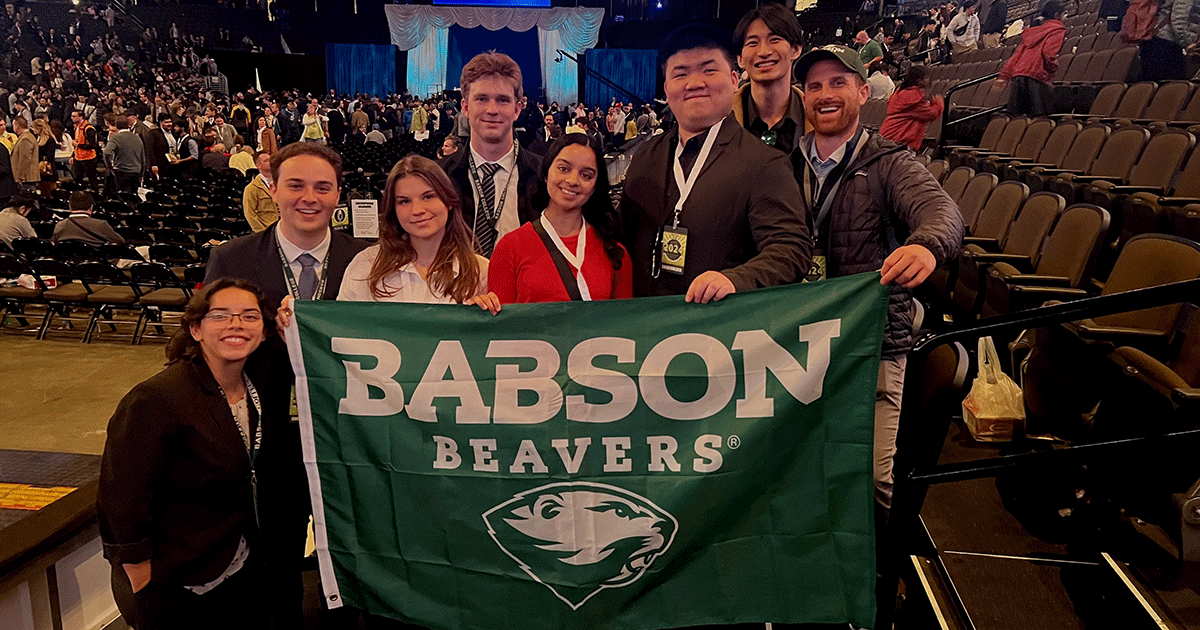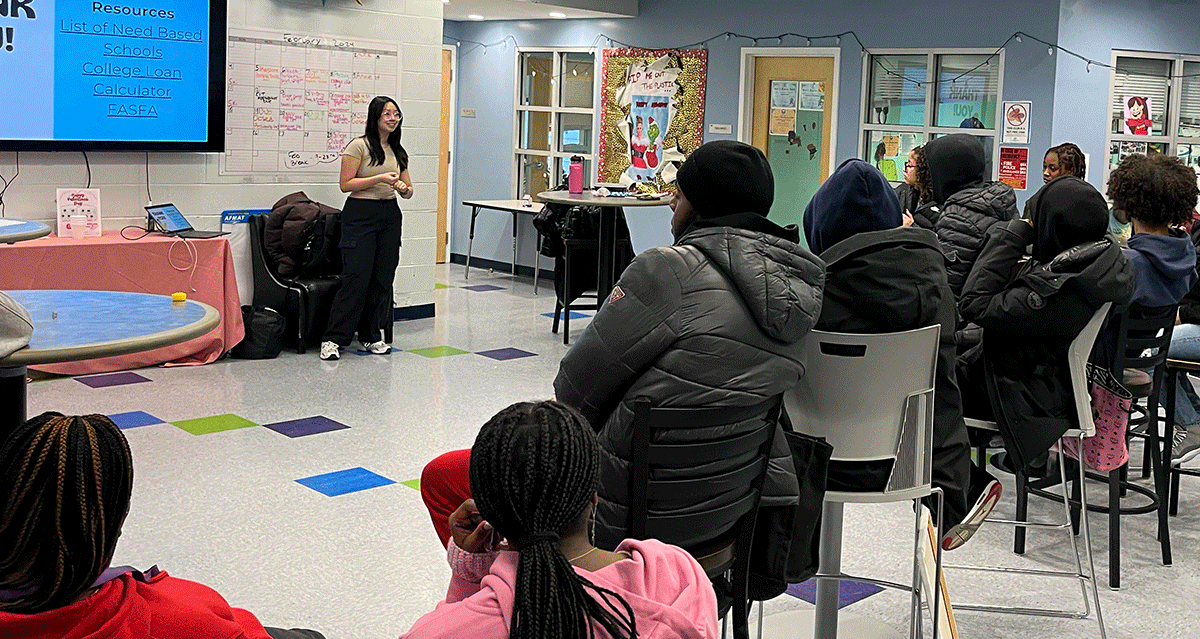Babson Tech Talk: How to Navigate AI and the Tech Career Landscape
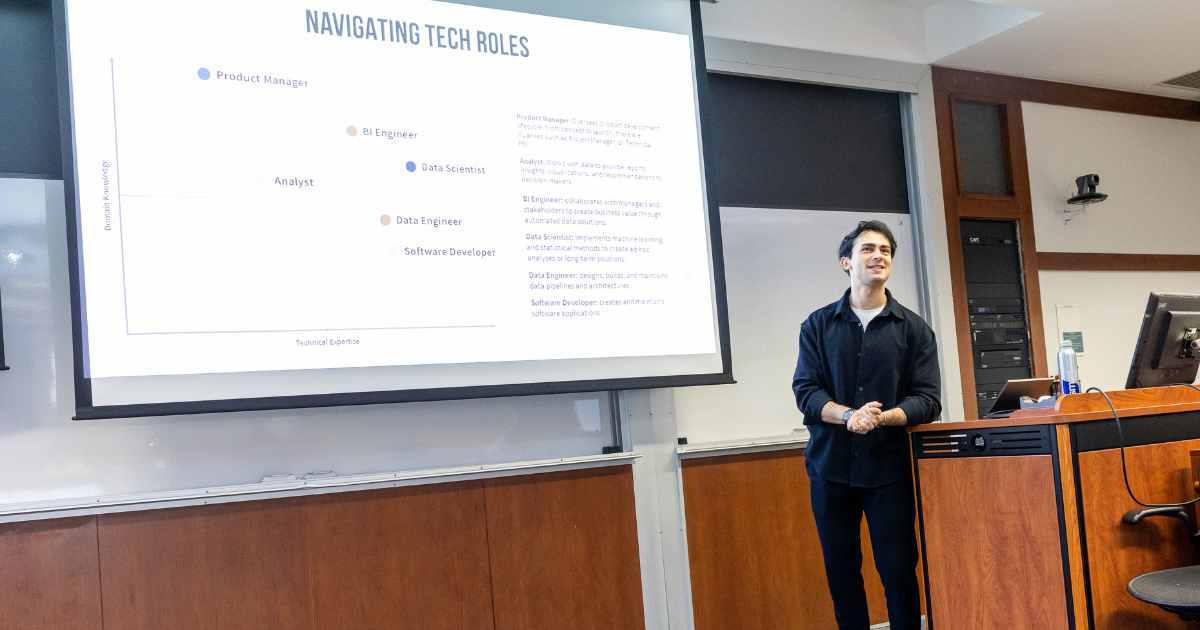
Some people spend their birthday celebrating with cake, presents, and parties. Others, like Matteo Stelluti MSBA’22, spend it giving back to their alma mater. The Babson alumnus, now a business intelligence engineer at Amazon, returned to campus from Seattle recently to host a tech talk for those pursuing a career in analytics, sharing advice with current students on how to navigate the job market and make big strides in their tech careers.
“It feels more like a family here,” Stelluti said to kick off the session. “I feel very connected to Babson.”
Tailored to students in the Master of Science in Business Analytics (MSBA) program and supported by the Analytics Club and Professor Mahdi Majbouri, Stelluti’s talk covered tips, tricks, and resources for the job search, as well as insights into the tech employment landscape from his point of view at Amazon. He shared insights about the shifts he has witnessed, which roles are growing, and how quickly the industry has evolved even since he started in 2023.
From his perspective, there are a few key things to focus on to boost your chances of securing your dream job in tech.
Embrace AI
One of the greatest changes Stelluti has noted in his industry is the pervasiveness of artificial intelligence. Tech giants like Amazon, Apple, Google, and Microsoft are racing to the top, each aiming to develop the most advanced, competitive, and coveted AI technology on the market. As a result, their employees have a lot to learn—and quickly adopt—in this space.
“In 2024, the business impact (of AI) is growing,” Stelluti said. As a result, “companies are investing in it.”
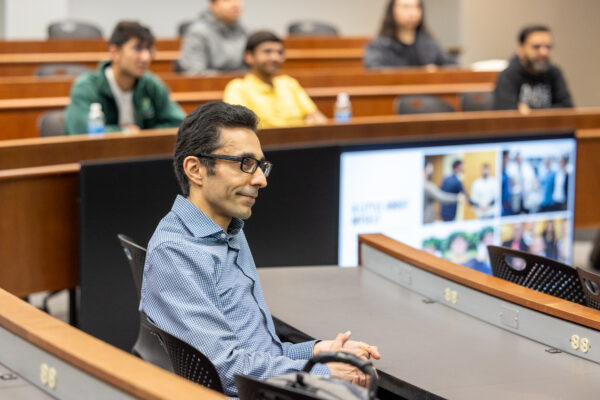
So much so that across industries, it is significantly boosting the demand of AI-based roles such as prompt engineers—the process of guiding generative AI solutions to generate desired outputs.
He said the need to upskill and reskill will become increasingly common for employees in industries beyond tech, and knowing how to use AI tools to create solutions and efficiencies will become the standard.
Stelluti shared examples of how AI tools can bring efficiency to code and can automate many of the more menial tasks that business analytics professionals may need to execute. Hearing Stelluti’s insights gave students an even closer look at how they might use AI in their day-to-day life at work and showed them how deeply they will be expected to understand it.
Master Your Craft
Before bringing AI into their day-to-day life, however, students need to become a master of their craft. Stelluti emphasized the importance of knowing your specialty in depth, whether it’s data science, data engineering, or product management, no matter what AI tools you rely on for support or efficiency.
For Stelluti, his specialty is understanding the data down to the grain—something he learned in the Storytelling and Communication with Data course, an elective within Babson’s MSBA program.
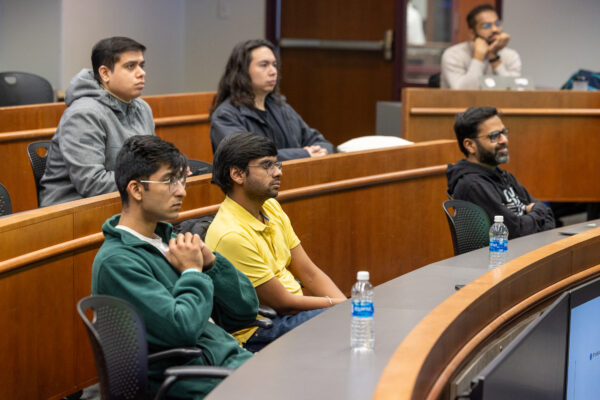
“There was this one lesson [at Babson], where Professor (Nathaniel) Karst said, the thing I want you to focus on is the level of detail of the data. Data can be defined at different granularity, and if you don’t understand the grain first, you won’t be able to do anything with it.”
Those words have come to help Stelluti in every data assignment he leads at Amazon and remind him how important the human’s role is in navigating AI in tech.
“I think that understanding the data and translating business reports into data solutions will continue to be the most important skill, because I don’t think that AI technology will be able to do that in the foreseeable future,” Stelluti said.
Showcase Your Skills and Build Your Network
All of your expertise and achievements only make an impact if you share them with others. Stelluti’s final words of advice were to showcase the skills you have through as many outlets as possible and not only join but engage in as many relevant networks and communities as you can.
For his peers in tech and data analytics, he gave examples including levels.fyi, O*NET Online, and Blind as top places to get insights and make connections, and platforms such as GitHub and Kaggle as areas to build and showcase your portfolio.
“It’s all about being active,” Stelluti said. “Be someone in your specialty outside of your university.”


